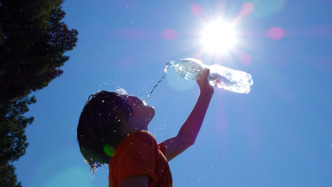
According to a paper published in Nature on May 7, the burden of the climate crisis will be borne primarily by younger generations rather than older ones. Analysis shows that under a 1.5°C warming scenario, about 52% of people born in 2020 will face unprecedented risk of heat wave exposure, compared with only 16% of people born in 1960. The findings highlight the urgency of slowing greenhouse gas emissions to mitigate the impact of climate change on younger generations.
Luke Grant, Wim Thiery and colleagues at the Free University of Brussels in Belgium projected global exposure to unprecedented extreme events under different climate warming pathways.
"Unprecedented" exposure is defined as a probability of less than one in 10,000 of experiencing the same extreme event in a world without human-caused climate change. The researchers found that people born in 2020 will double their exposure risk under current mitigation policies compared to those born in 1960. They noted that about 16% of people born in 1960 (13 million people) worldwide will face unprecedented lifetime heatwave exposure risk. At the same time, if global warming rises by 1.5°C above pre-industrial levels by 2100, about 52% of people born in 2020 (62 million people) will experience unprecedented heatwave exposure risk, and if warming reaches 3.5°C, this proportion will rise to 92%.
Furthermore, the researchers found that exposure to all extreme events increased significantly with birth year, adding that under current policies, the most socioeconomically vulnerable groups within each birth cohort are more likely to face higher exposure to climate extremes than the least vulnerable groups.
Related paper information: https://doi.org/10.1038/s41586-025-08907-1
(Original title: "People born in the 20s are more likely to encounter extreme climate events than those born in the 60s")